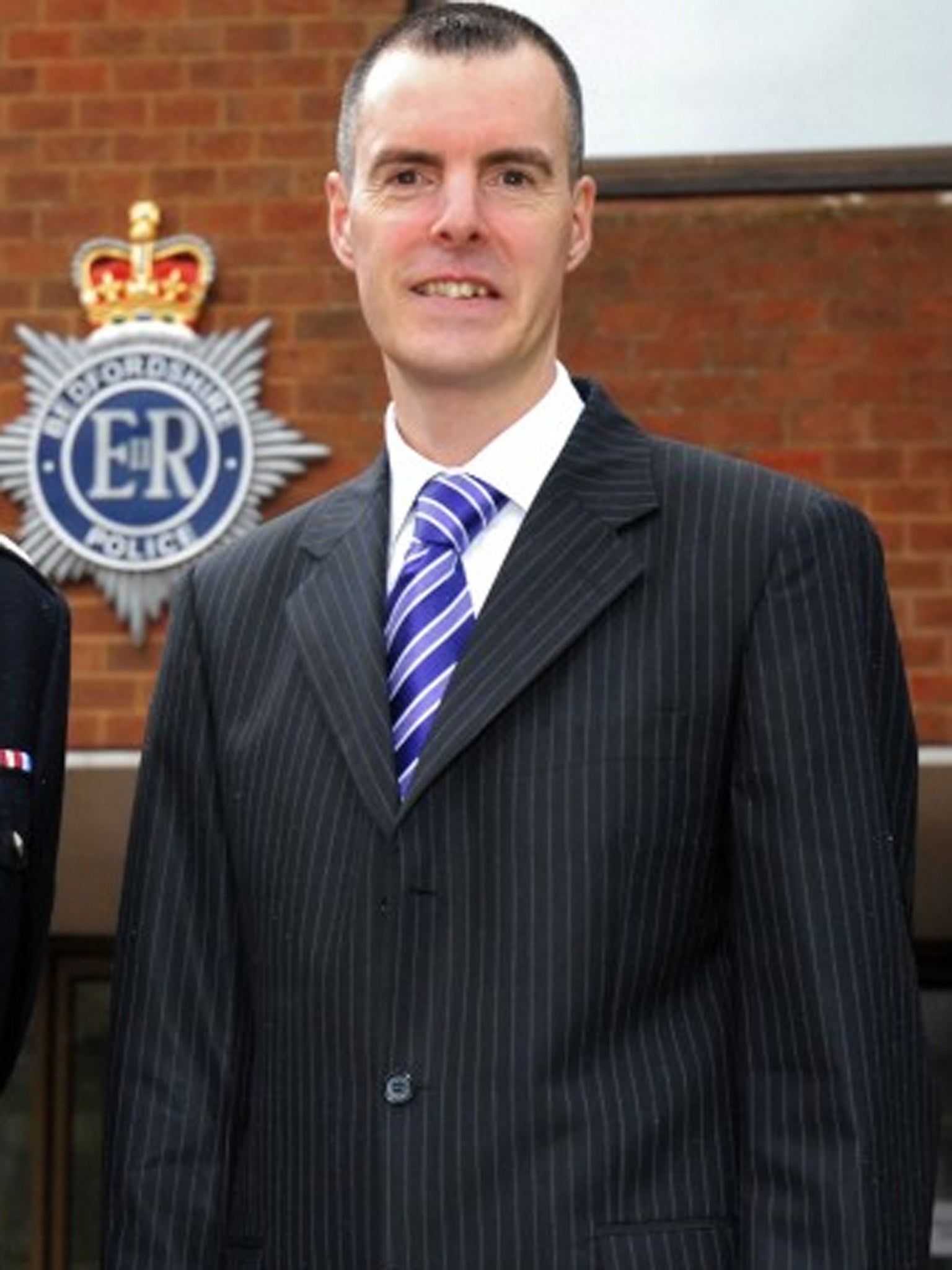Bedfordshire police commissioner facing IPCC criminal investigation over passing 'confidential information' concerning a death in custody

Bedfordshire’s police and crime commissioner will face an IPCC criminal investigation over the disclosure of “confidential information” relating to a death in custody.
Olly Martins has already received a written warning after he admitted passing information over the tragic incident to someone who worked at the Home Office who then passed the information to others. Mr Martins is to be interviewed under caution.
The Independent Police Complaints Commission will oversee the investigation into the £70,000-a-year Labour and Co-operative former councillor.
Father of two Leon Briggs, 39, died after he had been taken to Luton police station, having been restrained and detained by Bedfordshire police officers following concerns raised by the public.
Mr Briggs became ill and was taken to Luton and Dunstable Hospital where he died. His death is being separately investigated by the IPCC, and seven Beds police staff, including five police officers, have been suspended.
Mr Martins has close links with Teresa May’s department, having hired former senior Home Office mandarin Simon Bullock as his assistant commissioner on a salary of £55,000.
IPCC Commissioner James Dipple-Johnstone, leading the criminal investigation into Mr Martins, said: “I am satisfied from the information we have at this time that the disclosure should be recorded as a conduct matter. Not least because of the concern this matter will have caused to the Mr Brigg’s family and the local community means, there must be a fully independent investigation to determine the full circumstances of that disclosure.
“Our investigation will be independent, thorough, and I want to reassure the community it will not detract from our important work investigating what happened to Mr Briggs in police custody.”
On 1 December 2013 the IPCC was alerted to the leak by Bedfordshire Police after they were informed of it by a member of the public. An IPCC spokeswoman said the force was advised by the IPCC that it should send details of the complaint to Bedfordshire’s Police and Crime Panel, as required by the rules governing complaints against PCCs.
Bedfordshire’s Police and Crime Panel did not at that stage record it as a conduct matter or refer it to the IPCC. The IPCC then asked Bedfordshire’s Police and Crime Panel for information about a written warning it issued to Mr Martins in January at a private meeting and the material the panel considered before that action was taken.
Mr Martins told The Independent: “I am glad that the IPCC have made an expeditious decision and I will co-operate fully in the hope that this matter can be brought to a swift conclusion, in the interests of the people of Bedfordshire.”
Mr Martins was elected Bedfordshire PCC in November 2012 following the abolition of police authorities but is not the only PCC currently in the spotlight. Lincolnshire PCC Alan Hardwick has been ordered to apologise to his Chief Constable Neil Rhodes after his decision to suspend Mr Rhodes was quashed by the High Court this week and described by a judge as “irrational and perverse”.
Mr Hardwick was told by the Police and Crime Panel to apologise not only to Mr Rhodes for “the anxiety caused to him and his family in relation to the unlawful decision and the way the matter was handled”, but also to “the people of Lincolnshire” over the unlawful suspension.
The panel’s report later revealed that Mr Hardwick ignored legal advice and failed to get Mr Rhodes’s side of the story over his alleged support for an employee from another force.
Responding to the panel’s criticism, Mr Hardwick replied in a letter that he would communicate with Mr Rhodes “in the way you suggest” but said the Chief Constable was on leave until 24 February.
He said: “I am sure you will agree it would be inappropriate to say anything publicly in Mr Rhodes’s absence. It is therefore my intention to delay communications until his return.”
Bookmark popover
Removed from bookmarks